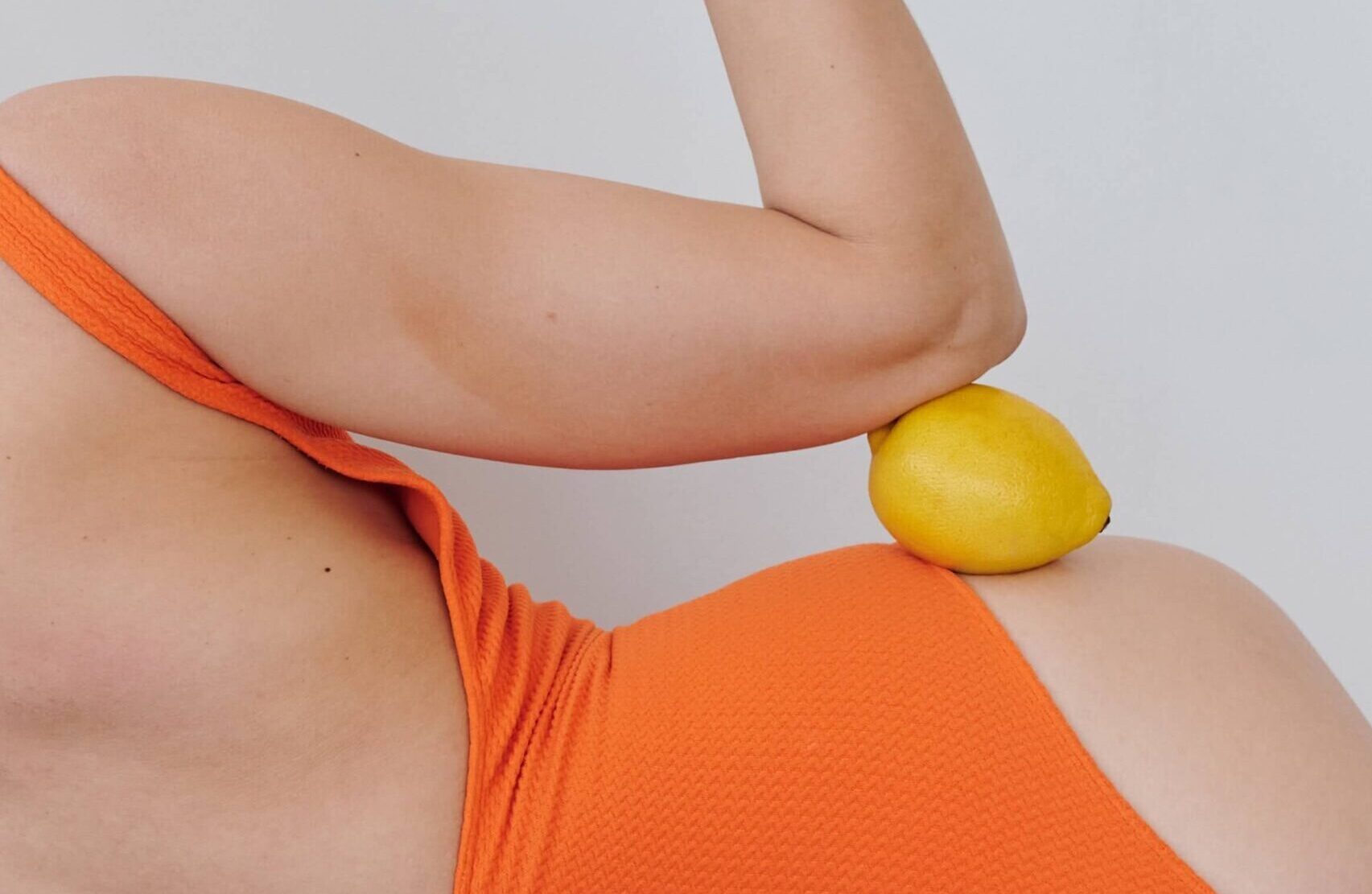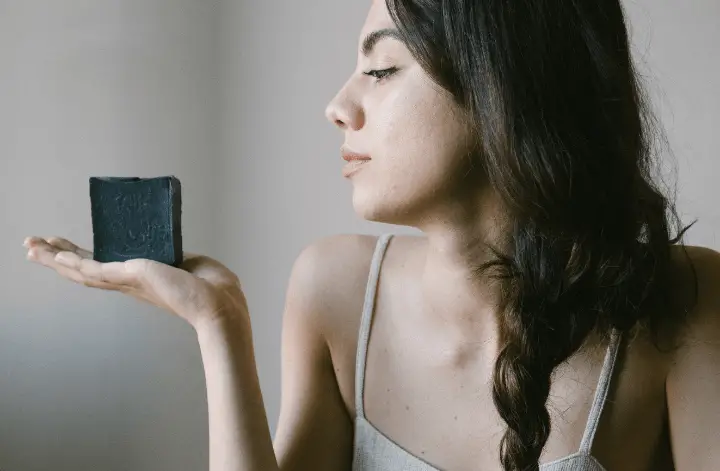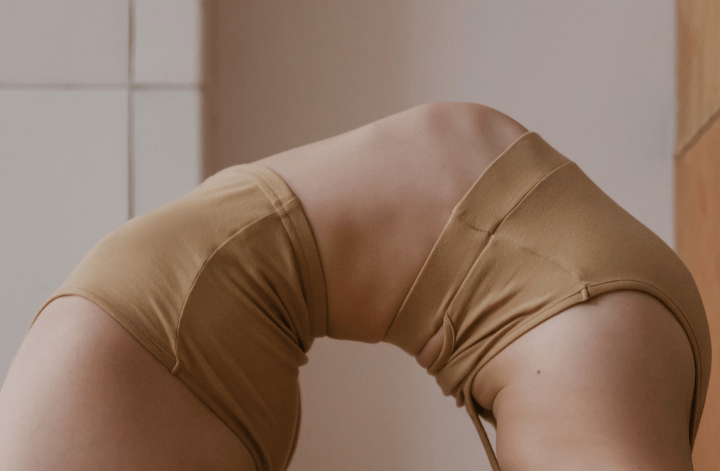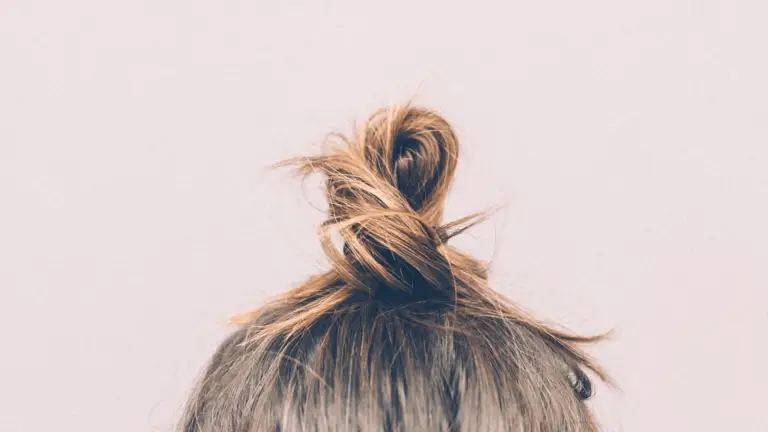Let’s start with the obvious (maybe not so obvious): lifestyle habits are not one-size-fits-all. A lot of the recommended habits for health may not necessarily agree with you, no matter how much you want them to.
I’ve certainly been guilty of this. You want to be the best possible version of yourself and when you read about all the benefits of a particular practice, you so want it to work!
There are many things that have been proven to have a beneficial effect on human health – physical, mental, and emotional. But the fact is some practices just seem to go against the grain for you. It can be frustrating.
It’s important to keep in mind that there’s more than one way to tie a knot! It’s important to try different things, or different ways, or times of day to do things. You’ll get a better idea of what works for you and how you might be able to incorporate a new lifestyle habit into your routine.
VERY BASIC & ESSENTIAL HABITS FOR HEALTH
The habits for health listed below are grouped under more general categories. This way you can see more than one way to achieve similar results and maybe find one habit that you can fit into your routine.
So what are the absolute most basic and essential habits for health you need.
1 – Start the day off right
If you’re jolted out of sleep by a blaring alarm clock and you have to jump straight out of bed and start running to be able to leave the house in time – you’re doing yourself a disservice.
Not just by starting the day off with stress, but also because being in a hurry means you’re that much more likely to make poor decisions with your diet.
Starting the day off right is one of the more satisfying habits for health.
Choose a soft or soothing alarm ring tone to wake you up in the morning
You don’t need to hit your body with a fight-or-flight response dilemma the second you wake up! The average day already has way too much of that.
Choose a softer alarm ring, or better yet leave the curtains slightly ajar so that the morning light can get in. Our eyeballs perceive the light photons even through closed eyelids, which helps us to wake up when day breaks (the natural way).
You can also get one of those sunrise alarm clocks, that mimic the color tone and gradience of the rising sun, if for some reason you can’t get the natural stuff.
Try waking up at least half an hour earlier than you absolutely HAVE to
If it takes you one hour to eat breakfast and get ready, then try waking up 90 minutes before you have to leave the house.
This way you make sure that you have enough time to get everything you need done before you go outside, plus you have some “me” time. And if there are any last minute hiccups, you have time to correct for them, without sidelining your routine completely.
Let’s say, you accidentally neglect to put the rubber ring thingy on the filter section of your Italian coffee percolator and, when the coffee starts rising, it suddenly explodes all over your walls! You’d have time to correct for that… and collect yourself… (never forget to check for the rubber ring thingy on your percolator!)
Have a large glass of water when you first wake up
This will help rehydrate your body that has just spent several hours clearing waste, repairing tissue, weeding and restructuring neural connections. That takes resources!
Drinking water first thing will also help kick start your bowel movements in the morning.
If you want to give it a health boost, add lemon juice and/or a tablespoon of apple cider vinegar. Both are alkalinizing for the body, rich in enzymes and vitamin C. Both will also stimulate your liver.
Have a protein rich breakfast with healthy fats
Instead of a carb-based one. The first meal of the day is important as a blood sugar level base point for the rest of the day. (*)
If you start your day with a high carbohydrate or sugary meal that has a high glycemic index, your body will come down hard from that spike and feel the crash. That will, in turn, also make you crave and turn to more carb foods to compensate. It just turns your day into a blood sugar rollercoaster ride.
It’s also been more than established that high glycemic breakfasts lead to more mood swings and poorer cognitive function throughout the day.
2 – Get your lymph and circulation going
Both are extremely important to health. The blood circulatory system is responsible for delivering oxygen and nutrients to all cells, among other things. And the lymph circulatory system gathers and moves cell waste material for removal.
Exercise and movement is the usual way by which our lymphatic system propels itself. Unlike the blood circulatory system, the lymph does not have a pump to keep it going.
But besides exercise, there are two great things you can do to keep both circulatory systems pumping nicely.
Dry brush your body before showering
Dry brushing is a wonderful way to both slough off dead skin cells and help the body move lymph waste for disposal. I talked about dry brushing in my post about the most effective natural cellulite treatments.
All you need is a gentle body brush (preferably with natural bristles) and 2 to 5 minutes of your time. Most people will do it before they get in the shower, to wash off the dead skin that comes off with the exfoliation.
Try cold water jolts at the end of each shower
Cold therapy has many benefits for your health. Among other things it will boost both circulatory systems in your body: blood and lymph.
The compensatory effort that the body makes to adjust to the cold temperature and protect the vital internal organs will do two things. It will boost blood circulation to all the tissues. And it will jolt the lymphatic waste movement, helping the body dispose of it and preventing accumulation in the body.
This accumulation can happen when we are too sedentary and spend a lot of time sitting, or just plain not moving our bodies.
3 – Move your body every day
It’s absolutely vital that you move your body every single day. It’s been shown to not only keep your physical body healthy, but also to be absolutely crucial for your emotional wellbeing.
Movement can be any type of sports, exercise, or physical activity that you enjoy, but you should try to make sure to include a variety of movement and effort.
Essential movement related habits for health to focus on are:
Get both aerobic and resistance type exercises
Aerobic capacity is wonderful, but muscle is essential for health.
It not only helps you keep proper posture and balance, but it also makes you less prone to injury. Muscle tissue also helps to keep a healthy metabolism and burn more fat for energy.
Related content: Move Your Butt! (Or, How To Strengthen The Glutes For a Better Life!)
Have days of gentle exercises and days of moderate to intensive exercise
If you’re not sweating a few times a week from your exercise, you’re missing out.
Exercise is “good stress” that our body needs to keep up its game, as it were. Think of it as necessary maintenance procedures on all your systems.
Sweating is also another waste disposal mechanism (detox) for the body. It’ll help to clear waste and clean out your skin.
Include stretching movements in all directions
This means, bend your body backwards, forward, twist to the sides, gyrate your hips, rotate your joints – get the full breadth of movements your body allows. Again – maintenance!
Yogis believe that to keep the spine fluid is the fountain of youth!
Stretch before and after your workouts & periodically throughout the day
This is especially important if you spend several hours sitting down and/or making repetitive motions!
4 – Eat real food
Your gut health is absolutely vital for your overall health, physically and mentally. Whatever diet you follow, make sure that most of what you’re eating is “real food”.
This means don’t just eat processed or ready cooked meals. Take the time to actually cook things from scratch. If you’re not used to this, start small.
Important dietary habits for health are:
Try to cook at least one real meal a day from scratch
Start with one a day and try to build on that. If you’re really bad in this category, then focus on cooking 3 or 4 real meals a week and try to build on that.
Baby steps if that’s what it takes you to get there – but try.
Make sure you’re getting color variety in your veggies & fruit
The different colors are indicative of the different antioxidants, vitamins and minerals your body needs to keep things running and do its job properly.
By getting a variety of colors, you’re increasing your chances of getting all you need.
Try microgreens, aka sprouts
They’re very easily digestible, more bioavailable, rich in enzymes, and typically have double the nutrient content.
On top of that, most are super easy to grow yourself at home! So you can have the freshest possible type of greens, the ones you grow and harvest yourself.
Get enough healthy fats
Again, regardless of your chosen diet, make sure you’re getting a good dose of healthy fats with your meals. You need them for a healthy brain and cognitive function, for mood stability, and hormone balance.
Fatty fish, nuts and seeds, avocados, eggs, bone and fish broths, cheese, olive oil…find yours!
Add super boosting antioxidants
Any fresh greens or fruits will be loaded with them – especially berries, dark leafy greens, cruciferous veggies, and nuts.
But adding other well known antioxidant powerhouses will only boost your body’s ability to fight oxidative stress (ie., aging).
Some of the most well studied are: green tea (also white and plain ol’ tea), turmeric, dark chocolate, herbs and spices (like cinnamon, clove, oregano, and parsley).
Add color, zest, and variety and you can’t go wrong!
5 – Be with other people
Social contact is also foundational for human health on all levels. We’re social beings. When we’re around other people we know and trust, and feel good with, our serotonin and dopamine goes up.
We get a sense of wellbeing, bliss, enjoyment, and satisfaction. Our physical health also improves. The mind-body connection is real!
Long periods of isolation, on the other hand, are tied to an increase in irritability, fear, paranoia, and an impaired immune function.
Here are some high-impact social habits for health.
Touch your friends and loved ones
Physical contact heals. It releases all those neurotransmitters that makes us feel part of something valuable, that makes us feel loved and wanted.
All of that boosts your enjoyment of life and sense of satisfaction, fights depression, while also boosting your immune system.
Engage in group activities
If you don’t have many friends, then sign up for group activities doing things you enjoy. It’s a great way to find like-minded people who might become part of your life.
And even if you don’t, you still get the health benefit of participating in group dynamics and sharing moments with other human beings.
Reach out to someone if you’re going through a hard time
In times of stress and pain it’s especially important to not isolate yourself completely. Although the body does seem to need time alone to process, it’s far too easy to become overly pessimistic, cynical and fatalistic about your situation.
It’s helpful to be around other people who can give you a different perspective on things.
6 – Make time for yourself
Although social interaction is absolutely vital to human health and wellbeing, you have to remember to check in with yourself regularly too.
Life can get pretty hectic. Between work and social time you may not be doing things that stimulate your creativity, or give you time to just be, without pressure.
Do something creative just for the fun of it
Try to aim for a few times a week. If you can squeeze one little thing in every day – even better.
Don’t think about whether or not it’s “productive”, or “worth your time”, or “silly”. Don’t think about whether or not you’re any good at it – just do it, if you enjoy it. This will be different for everybody.
For instance, I really enjoy making pastel fashion drawings. Like, I’ll see some gorgeous design in a movie or TV show (especially when it’s set in the 20s or 30s) and I’ll just get an urge to make a drawing of it.
I’m not particularly good at it, but there’s something about the feeling of the soft pastels in my fingers and the luminous colors it produces on the page…I love it!
Even if it’s silly – if you enjoy it, do more of it.
Write down the things you’re grateful for every day
This is an exercise that honestly feels a bit phony and silly when you first do it. You may have a hard time finding things to feel grateful for. Most of us can make a mile-long list of all the things we’d like to have but don’t. But that’s precisely the exercise.
You have to make an effort to shift your focus and think of things, so you start looking for them everywhere. And the funny thing is you start finding them, more and more.
This is down to your Reticular Activating System (RAS). The RAS is a tiny bundle of neurons in our brain that helps with the filtering process of all the data that inundates us daily. It basically alerts other parts of the brain about the importance level of the incoming information. Basically saying, “pay attention to this”, “disregard that”.
We consciously, and most of the times subconsciously, decide over time what type of things are “important” and what type are not. The RAS is the main reason why, when you hear a word, or become aware of a thing that you hadn’t been before, you suddenly see it everywhere.
If we’re particularly biased towards negative thinking, that’s all we see. You have to make a conscious effort to find things to be grateful for – you will start seeing them more easily. This has been proven to significantly improve your quality of life.
Disconnect from daily concerns
- Try some kind of breathing practice or meditation.
- Laugh like a crazy person, just because.
- Dance to your favorite music.
- Sing your favorite song.
Find something that works for you! The important thing is that it allows you to switch off the analytical part of your brain. Just do something more instinctual.
7 – Prioritize sleep
I’ve written a whole blog post on the best scientifically proven ways to get better sleep. If you have sleep issues, go check it out.
Sleep is absolutely vital to health! It’s one of the foundations. If you’re not sleeping well, your body will not be repairing itself properly. It’ll deteriorate and age faster. Sleep is also incredibly important for emotional stability and wellbeing.
When you’re not getting enough quality sleep you’re more irritable, you have a tendency to think in more negative ways, and every single cognitive function will be compromised.
Good sleep habits for health are:
Try to keep approximately the same sleep schedule
Sleep consistency – as in, not getting into the habit of “making up for sleep” on days off, for instance – is generally better for sleep quality overall.
Don’t have big meals right before bed
Not only will it raise your body temperature and mess with your natural circadian rhythms, which ensure your body starts cooling off at a specific time to enable sleep onset. It might also interfere with proper digestion of your food.
So, have lighter meals or make sure to have your last meal at least 2 to 3 hours before bed.
Look at daylight as close as possible to sunrise and sunset.
Those particular shades of blue and yellow are one of the most important ways the body uses to set the circadian rhythm for the wake-sleep cycle.
Try not to exercise too late in the afternoon
Exercise raises your body temperature, which goes against the natural body cooling that’s conducive to sleep onset.
Mild exercise like yoga or walking should be fine, but anything actually strenuous might affect your sleep pattern.
Write down anything important that’s on your mind
That could be To Do lists, any ideas that are floating around in your head, or anything that you might want to remember.
A lot of times the second you turn off the light to go to sleep, suddenly everything is quiet and there are no distractions, your mind just can’t switch off. Especially if you have a big day coming up, or there’s a lot on your plate at that moment.
Writing down all the things you need or want to get done, or the specific details you don’t want to forget, is a great way to clear them from your mind. This way you’re more likely to be able to relax and fall asleep.
Take 5 to 10 minutes to calm your nervous system and release tension in the body
You’ll be surprised how tense you actually might be, if you take the time to intentionally relax. You can do this in many ways.
- Try the physiological sigh
- Exhale for longer than you inhale, for a few minutes
- Do some stretching or yoga like exercises in bed
- Listen to some relaxing nature sounds, guided meditations or relaxations
- Have an orgasm (or two!)
8 – Spend time in nature
Even if you consider yourself a city person through and through, your body still “feeds” off nature and needs its cues. We’ve evolved in it, surrounded by it, and we absolutely benefit from being in touch with it.
There are a ton of studies reporting the wide range of benefits to human health, from psychological, to physiological, to cognitive and social, physical and spiritual wellbeing.
People with access to natural settings tend to have better health overall, to experience higher levels of satisfaction and wellbeing. (*)
And these benefits can come from being in just about any natural setting – seaside, mountains, forests, parks, desert landscapes. Although each setting will come with specific elements that might suit your mood and personality more, of course.
So hit your nearest green spot, body of water, scenic landscape – whatever it takes – and go there often!
These are some of the most essential and foundational habits for health that are good to include in your lifestyle. As you can see, a healthy lifestyle is about much more than just what you’re eating, or how much you’re working out.
Human beings are complex systems, interacting with other complex systems, inside other complex systems that we’ve evolved with and also created ourselves.
We have a physical side, an emotional side, a spiritual side, and God knows how many more sides! So make sure you’re taking care of all of them, because they will have an impact on your physical health.
What about you? Do you have any tips for healthy lifestyle habits you swear by? Or fundamental habits for health you refuse to compromise on?








